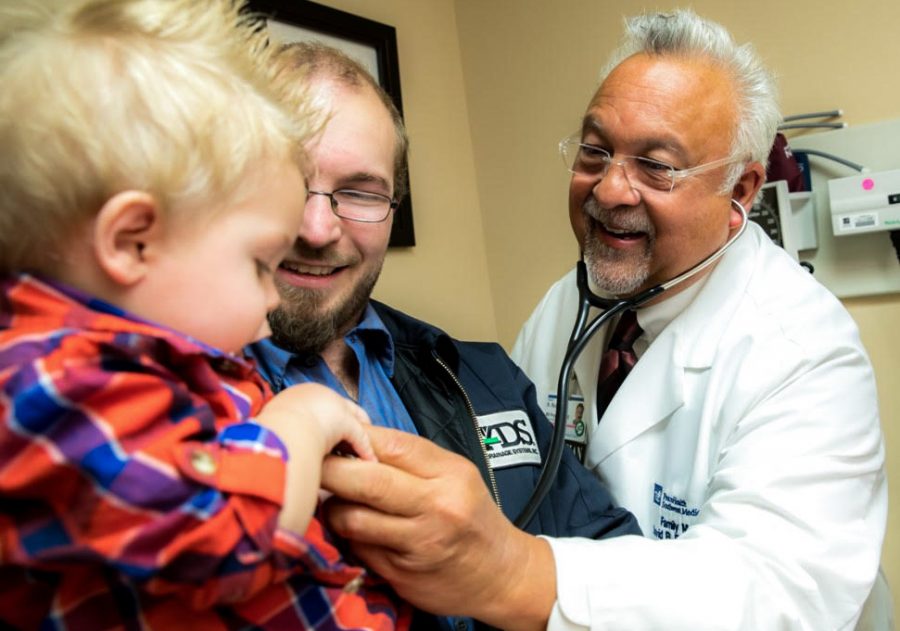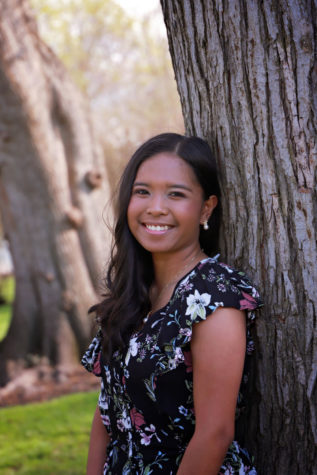Doctor honored for service to Latino community
Ruiz receives award for his commitment to underserved groups
Dr. David Ruiz, a WSU faculty member in the WSU College of Medicine, says his family impacted him and contributed to his decision to become a doctor.
October 8, 2019
A WSU faculty member received an award to recognize his contribution to the underserved Latino community in Vancouver.
Dr. David Ruiz, WSU College of Medicine clinical professor, was one of four recipients of the Hispanic Metropolitan Chamber’s Bravo Award in September.
“It was a very humbling award. I felt grateful for it,” Ruiz said. “But I felt, more importantly, it was okay for me to be singled out as an example of what Latinos can achieve.”
Ruiz was born and raised in Tucson, Arizona. He is from a Latino family. His grandparents were born in Sonora, Mexico, but his parents were born in the U.S.
“My siblings and I were focused on fitting in rather than standing out in order to achieve,” he said. “For us, we didn’t really see ourselves as different. As I look back on my past, I knew that we were.”
Ruiz said his family impacted him profoundly. They instilled in him the passion to become a doctor and ensured he held on to his cultural roots.
“I’ve always been grateful for everything that my parents, extended family, and the community in Tucson did to prepare me for a career in medicine,” he said. “I’ve always felt it important to not forget my roots and to give back whenever I could in a variety of ways.”
Ruiz said he became involved with a group called “Los Changuitos Feos,” or the Ugly Little Monkeys, during his middle school and high school years. It was the first youth mariachi band in the country. He said the band used its music to engage people in discussing race and ethnicity.
“We became basically community outreach ambassadors for not only mariachi music but the entire Latino, Chicano, Mexican, Mexican-American culture,” Ruiz said. “We were able to present a slightly different picture of standing out.”
Ruiz said his family moved to Vancouver after his residency training. Initially, he wasn’t aware of the Latino community in Vancouver. He said this changed after he read a newspaper and found out that there was a large but “hidden” Latino population.
In 1993, Ruiz founded a residency program called Family Medicine of Southwest Washington Residency. It is based in Vancouver and is affiliated with the University of Washington. The program is sponsored by PeaceHealth Southwest Medical Center.
The program sponsors a variety of services, he said. This includes a free community clinic, procedure clinic for uninsured individuals, medical staffing at local high school games or tournaments, grant-supported cervical and breast health screenings.
“It’s not about how many mission trips you do outside or within the U.S., not how many hours per week you volunteer at a clinic, but it’s in being able to use a skill set, resources and influence to do a better good,” Ruiz said.
Kristen Taylor, Family Medicine of Southwest Washington Residency clinic manager, said the residency program Ruiz created has allowed PeaceHealth to serve both the physical and mental health needs of vulnerable populations in Vancouver.
Taylor said 80 percent of the people they serve are dependent on Medicaid or Medicare and most speak Spanish.
“Having this residency and making sure that we have this diverse population, allowed more of the Latino community to have care in the areas they live,” Taylor said.
Reflecting on his experiences, Ruiz said holding on to one’s roots is integral. His roots drive him to serve Vancouver’s Latino community in any way he can.
“Know where you came from. Honor that always,” he said. “Lastly, don’t be afraid to stand out.”






















